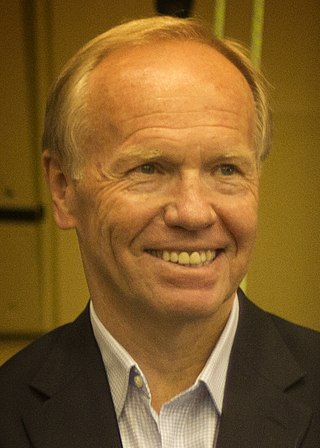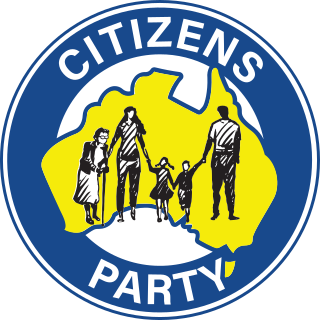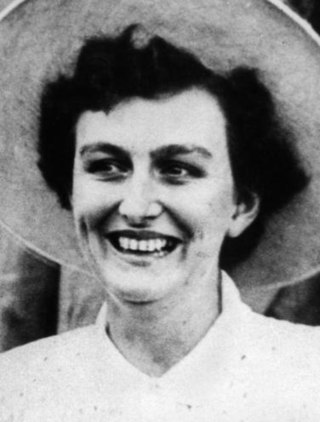
The Liberal Party of Australia is a centre-right political party in Australia, one of the two major parties in Australian politics, along with the centre-left Australian Labor Party. It was founded in 1944 as the successor to the United Australia Party and has since become the most successful political party in Australia's history.

Sir Johannes Bjelke-Petersen, known as Joh Bjelke-Petersen, was a conservative Australian politician. He was the longest-serving and longest-lived premier of Queensland, holding office from 1968 to 1987, during which time the state underwent considerable economic development. He has become one of the most well-known and controversial figures of 20th-century Australian politics because of his uncompromising conservatism, political longevity, and the institutional corruption that became synonymous with his later leadership.

Peter Douglas Beattie is an Australian former politician who served as the 36th Premier of Queensland, in office from 1998 to 2007. He was the state leader of the Labor Party from 1996 to 2007.
The Joh for Canberra campaign, initially known as the Joh for PM campaign, was an attempt by Queensland National Party premier Sir Joh Bjelke-Petersen to become Prime Minister of Australia. The campaign was announced in January 1987 and drew substantial support from Queensland businessmen and some conservative politicians. The campaign caused a split in the federal Coalition. It did not attract widespread support and collapsed in June 1987. The Australian Labor Party, led by Bob Hawke, went on to win by an increased majority in the 1987 federal election, gaining its highest-ever number of seats. Bjelke-Petersen came under increasing scrutiny as the Fitzgerald Inquiry gained traction, and was forced out of politics altogether in December 1987.
The Commission of Inquiry into Possible Illegal Activities and Associated Police Misconduct into Queensland Police corruption was a judicial inquiry presided over by Tony Fitzgerald QC. The inquiry resulted in the resignation of Queensland's premier, Joh Bjelke-Petersen, the calling of two by-elections, the jailing of three former ministers and the Police Commissioner. It also contributed to the end of the National Party of Australia's 32-year run as the governing political party in Queensland.

The Australian Citizens Party (ACP), formerly the Citizens Electoral Council of Australia (CEC), is a minor political party in Australia affiliated with the international LaRouche Movement which was led by American political activist and conspiracy theorist Lyndon LaRouche.

Lawrence James Springborg is an Australian politician. He led the National Party in the Queensland Parliament from 2003 to 2006 and again in 2008, before becoming the first leader of the merged Liberal National Party from 2008 to 2009. He led the LNP again from 2015 to 2016 before announcing his retirement. He currently serves as Mayor of Goondiwindi Regional Council, having been elected in March 2020.
The Bjelkemander was the term given to a system of malapportionment in the Australian state of Queensland in the 1970s and 1980s. Under the system, electorates were allocated to zones such as rural or metropolitan and electoral boundaries drawn so that rural electorates had about half as many voters each as metropolitan ones. The Country Party, a rural-based party led by Joh Bjelke-Petersen, was able to govern uninhibited during this period due to the 'Bjelkemander' and the absence of an upper house of Parliament.

The Legislative Assembly of Queensland is the sole chamber of the unicameral Parliament of Queensland established under the Constitution of Queensland. Elections are held every four years and are done by full preferential voting. The Assembly has 93 members, who have used the letters MP after their names since 2000.

Michael John Ahern is a former Queensland National Party politician who was Premier of Queensland from December 1987 to September 1989. After a long career in the government of Sir Joh Bjelke-Petersen, Ahern became his successor amid the controversy caused by the Fitzgerald Inquiry into official corruption. Ahern's consensus style and political moderation contrasted strongly with Bjelke-Petersen's leadership, but he could not escape the division and strife caused by his predecessor's downfall.

Florence Isabel Bjelke-Petersen was an Australian politician and writer. She was a member of the Australian Senate from 1981 to 1993, and was the wife of the longest-serving Premier of Queensland, Sir Joh Bjelke-Petersen. She was styled as Lady Bjelke-Petersen upon her husband's knighthood, and was also known informally as Lady Flo.

Sir Walter "Wally" Benjamin Campbell, was an Australian judge, administrator and governor. He was the Chief Justice of the Supreme Court of Queensland, Chancellor of the University of Queensland and the 21st Governor of Queensland from 1985 to 1992.
The following lists events that happened during 1987 in Australia.

The 1989 Queensland state election was held in the Australian state of Queensland on 2 December 1989 to elect the 89 members of the state's Legislative Assembly. This was the first election following the downfall of seven-term premier Sir Joh Bjelke-Petersen at the end of 1987.

The 1987 Australian federal election was held in Australia on 11 July 1987, following the granting of a double dissolution on 5 June by the Governor-General Sir Ninian Stephen. Consequently, all 148 seats in the House of Representatives as well as all 76 seats in the Senate were up for election. The incumbent Australian Labor Party, led by Prime Minister Bob Hawke, defeated the opposition Liberal Party of Australia, led by John Howard and the National Party of Australia led by Ian Sinclair. This was the first, and to date only, time the Labor Party won a third consecutive election.
Colin Anfield Hughes was a distinguished British-Australian academic specialising in electoral politics and government. He was Emeritus professor of political science at the University of Queensland, and chairman of the Queensland Constitutional Review Commission (1999–2000).

William Angus Manson Gunn AM was an Australian politician who represented the Queensland Legislative Assembly seat of Somerset from 1972 until 1992. A member of the National Party, he also served as a Minister and Deputy Premier in various Queensland administrations during the 1980s, and was instrumental in establishing the Fitzgerald Inquiry.
The Conservative Party of Australia was a registered political party in 1984, but was deregistered by the AEC on 21 October 1998 as membership had fallen below the required 500 members.
Sir Sydney Schubert was an Australian public servant best known for the work he did in Queensland during the 1970s and 1980s as Co-ordinator General of the Premier's Department, and for his positions as chancellor of Bond University and chief executive of Daikyo Australia.

The National Party of Australia – Queensland (NPA-Q), commonly known as Queensland Nationals, or the National Party of Queensland, was the Queensland-state branch of the National Party of Australia (NPA) until 2008. Prior to 1974, it was known as the Country Party.












